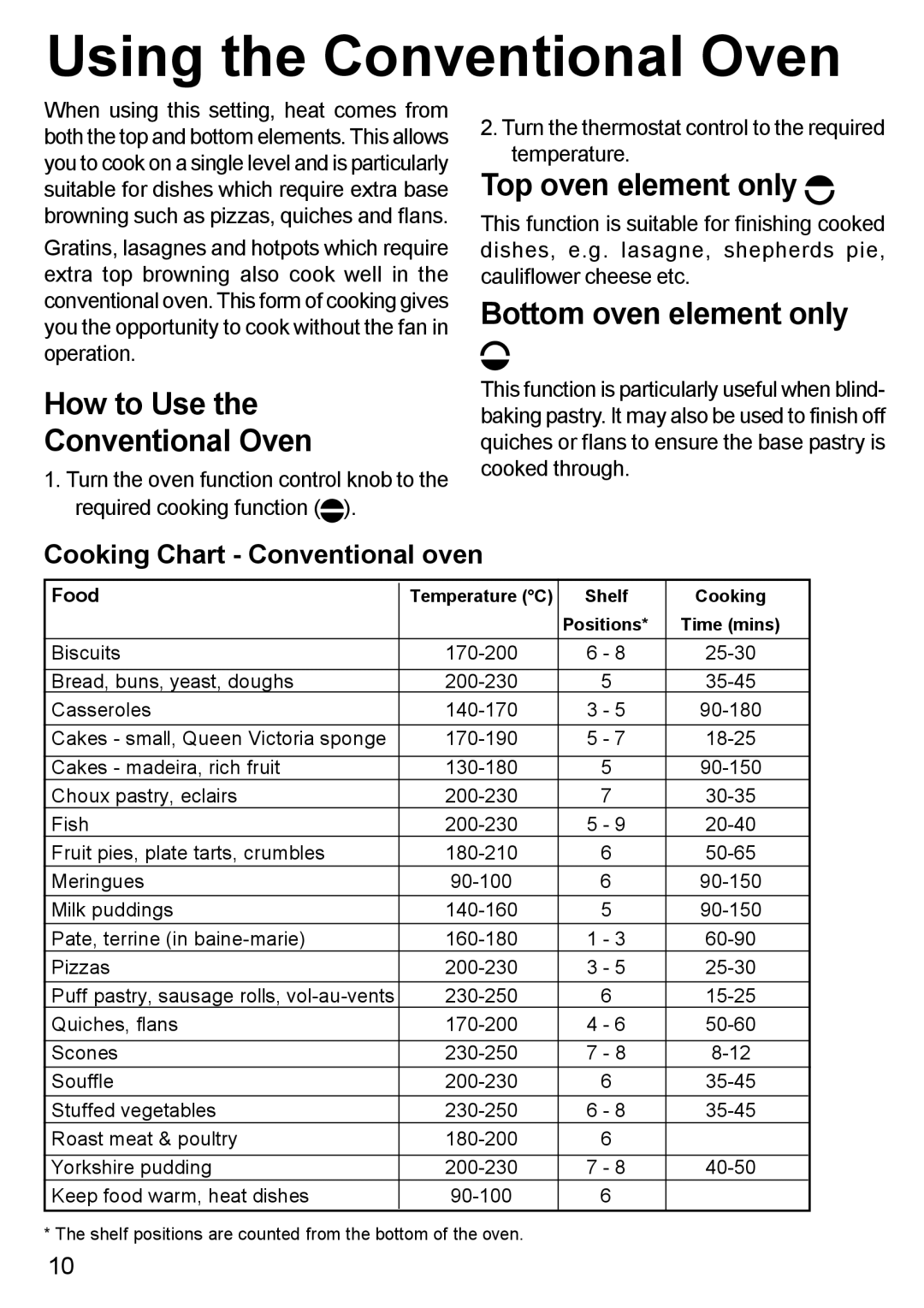
Using the Conventional Oven
When using this setting, heat comes from both the top and bottom elements. This allows you to cook on a single level and is particularly suitable for dishes which require extra base browning such as pizzas, quiches and flans.
Gratins, lasagnes and hotpots which require extra top browning also cook well in the conventional oven. This form of cooking gives you the opportunity to cook without the fan in operation.
How to Use the
Conventional Oven
1.Turn the oven function control knob to the required cooking function (![]() ).
).
2.Turn the thermostat control to the required temperature.
Top oven element only 
This function is suitable for finishing cooked dishes, e.g. lasagne, shepherds pie, cauliflower cheese etc.
Bottom oven element only
This function is particularly useful when blind- baking pastry. It may also be used to finish off quiches or flans to ensure the base pastry is cooked through.
Cooking Chart - Conventional oven
Food |
| Temperature (°C) | Shelf | Cooking |
| ||||
|
|
| Positions* | Time (mins) |
|
|
|
|
|
Biscuits |
| 6 - 8 | ||
|
|
|
|
|
Bread, buns, yeast, doughs |
| 5 | ||
Casseroles |
| 3 - 5 | ||
|
|
|
|
|
Cakes - small, Queen Victoria sponge |
| 5 - 7 | ||
|
|
|
|
|
Cakes - madeira, rich fruit |
| 5 | ||
Choux pastry, eclairs |
| 7 | ||
Fish |
| 5 - 9 | ||
Fruit pies, plate tarts, crumbles |
| 6 | ||
Meringues |
| 6 | ||
|
|
|
|
|
Milk puddings |
| 5 | ||
Pate, terrine (in |
| 1 - 3 | ||
Pizzas |
| 3 - 5 | ||
|
|
|
|
|
Puff pastry, sausage rolls, |
| 6 | ||
Quiches, flans |
| 4 - 6 | ||
|
|
|
|
|
Scones |
| 7 - 8 | ||
|
|
|
|
|
Souffle |
| 6 | ||
|
|
|
|
|
Stuffed vegetables |
| 6 - 8 | ||
Roast meat & poultry |
| 6 |
| |
|
|
|
|
|
Yorkshire pudding |
| 7 - 8 | ||
Keep food warm, heat dishes |
| 6 |
|
* The shelf positions are counted from the bottom of the oven.
10
